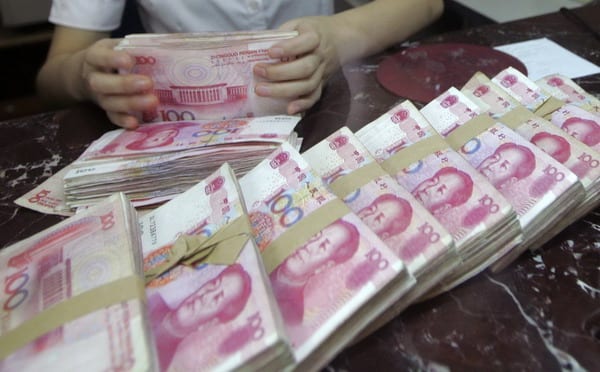China’s deficit in its foreign exchange settlement expand in December, official data showed Thursday.
Chinese lenders bought US$128 billion (£103.98 billion) worth of foreign currency and sold US$174.3 billion (£141.67 billion); resulting in a deficit of US$46.3 billion (£37.61 billion) in December, up from the November deficit of US$33.4 billion (£27.13 billion), according to State Administration of Foreign Exchange (SAFE) data.
The Chinese banks’ forex settlement deficit hit US$337.7 billion (£274.33 billion) in 2016, the data showed.
On a quarterly basis, the banks’ forex settlement deficit fell from US$124.8 billion (£101.44 billion) in the first quarter to 49 billion dollars (£39.82 billion) in the second, 69.6 billion dollars (£56.57 billion) in the third and 94.3 billion dollars (£76.64 billion) in the fourth, according to the data.
“The figures show that the pressure of cross-border capital outflows has eased significantly compared with the start of 2016,” said SAFE spokesperson Wang Chunying.
He said that domestic enterprises had been less interested in purchasing forex in 2016 compared to the previous year because their financing needs increased.
Foreign-currency deposits became more popular among domestic enterprises and individuals in 2016, as the balance of forex deposits in Chinese banks rose US$60.4 billion (£49.09 billion) in 2016, and the increase was 48.8 billion dollars (£39.65 billion) more than that of the previous year, the data showed.
China’s forex reserves fell for the sixth straight month in December, by US$41.1 billion (£33.40 billion) to 3.01 trillion dollars (£2.45 trillion), as the central bank used them to balance the forex market and currencies weakened against the dollar.
Despite recent drops, China is still home to the world’s largest forex reserve and enjoys forex inflows from its trade surplus and foreign direct investment.


